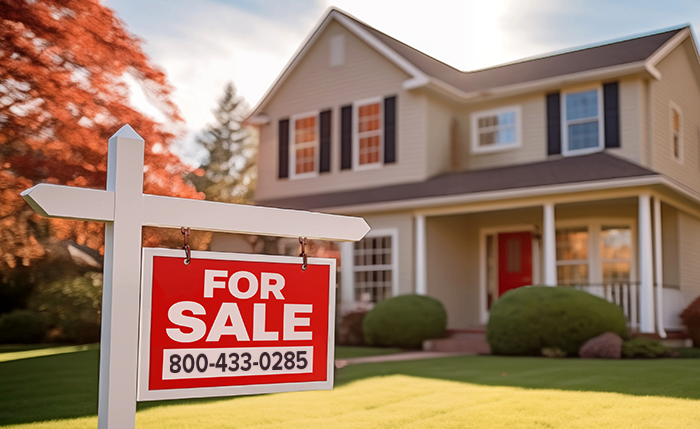The Advantages of Jumbo CDs
August 28, 2024
Read Post
Conventional loans are the most common type of home loan and are secured by government sponsored entities such as Fannie Mae and Freddie Mac. Conventional loans can be made to purchase or refinance single family or 2- to 4-unit family homes.
The most common type of mortgage program is a fixed-rate mortgage, where your monthly payments for interest and principal never change. Property taxes and homeowners’ insurance may increase, but generally your monthly payments will be very stable. Typically, loans with longer terms (in years) have a higher interest rate than loans with shorter terms due to interest rate risk and the possibility of fluctuating interest rates. Fixed-rate mortgages are best for buyers who are planning to stay in their homes longer. Qualifications include:
We offer in-house mortgage financing solutions for buyers based on select qualifications:
Consult with our mortgage banking officers for more details.*
Our 100% In-House Financing program typically involves two mortgage loans: a fixed-rate mortgage for 80% of your home’s value and a second mortgage to cover the remaining 20%. This program allows for full financing and eliminates the need for Private Mortgage Insurance (PMI). Buyers need initial funds for “good faith” deposit, home inspection, closing costs, and fees. Consult with our mortgage banking officers for full details.** Qualifications include:
*Subject to appraisal and approval.
**100% financing does not include any closing costs or other fees.
Adjustable-Rate Mortgages traditionally offer lower introductory interest rates compared to a 30-year fixed-rate mortgages.
However, the interest rate changes at specified intervals (specific years) depending on changing market conditions; if interest rates go up, your monthly mortgage payment will go up, too. However, if rates go down, your mortgage payment will drop also.
There are also mortgages that combine aspects of fixed and adjustable-rate mortgages - starting at a low fixed rate for seven to ten years, for example, then adjusting to market conditions. Ask your mortgage banking officer about these and other special kinds of mortgages that fit your specific financial situation.
BankIowa partners with the U.S. Department of Veterans Affairs to assist service members, veterans, and eligible surviving spouses in becoming homeowners.
If you’re currently serving in our armed forces, or you’re a veteran, a VA home loan should be considered. VA home loans have competitive interest rates and may not require a down payment or Private Mortgage Insurance (PMI).
A VA-guaranteed Home Loan can be used:
BankIowa appreciates the service of our veterans. If you are considering a VA loan, we invite you to discuss the process with one of our mortgage banking officers. Qualifications include:
*Subject to appraisal. 100% financing does not include any closing costs or other fees.
If you are a first-time home buyer with limited funds for the initial down payment, an FHA loan may be a great option since this type of loan allows for a lower down payment. It is a loan that is insured by the US government. FHA loans are designed to help low- to moderate-income families attain home ownership! Qualifications include:
A USDA Rural Development loan can be a good option for those who have limited resources (no down payment required) and who want to live in eligible small towns and rural areas. USDA loans are guaranteed by the USDA Rural Development Guaranteed Housing Loan Program, a part of the U.S. Department of Agriculture, and potential home buyers must meet certain requirements. In addition to having no down payment requirements, USDA home loans often also have lower rates than conventional mortgages because the government is taking on the risks associated with lending.
If you feel you qualify for a USDA loan or are not quite sure, talk to one of our mortgage banking officers today to discuss your situation.
A construction loan can be used to finance a custom home designed and built to your specifications or to pay for a major home renovation. Once funding is approved, BankIowa disburses the funds in installments as the work advances. Once building is complete, home construction loans are either converted to permanent mortgages or paid in full. During the construction phase, the borrower pays only interest on the loan.
You don't need a construction loan to buy a production home in a new development. With a production home, the builder or developer finances the construction. You choose from a set number of offered house plans and features, and, when the construction is finished, purchase the house from the builder with cash or with a traditional mortgage from BankIowa.
If you are interested in a construction loan, contact one of our mortgage banking officers for full details.
The Iowa Finance Authority is an Iowa state government program designed to help first-time home buyers, experienced home buyers, veterans, and others buy a home through a multitude of down payment and closing cost assistance programs. If you feel you qualify for an IFAP loan or are not quite sure, talk to one of our mortgage banking officers today to discuss your situation. You can learn more about the Iowa Finance Authority through their website, Iowa Finance.